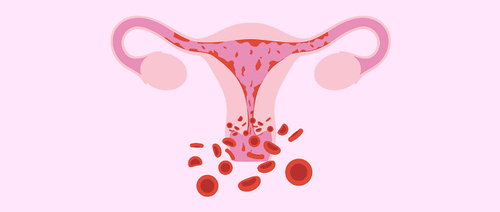This is an automatically translated article.
Endometriosis in the uterus, also known as myometrium, is a phenomenon in which glandular tissues in the endometrium appear and grow in the muscular layer of the uterus. This is a benign gynecological disorder in women between the ages of 40 and 50.
1. Causes of uterine myopathy
Endometrial myopathy is a condition in which glandular tissue of the endometrium is present within the muscle of the uterine wall. Normally, the glandular epithelium is only present in the endometrium, has a cycle of growth and degeneration according to the cycle of female sex hormones, causing menstruation.
The cause of myometosis is uncertain, but there are several theories:
Due to the development of the fetus, uterine myoma can form from early childhood. May be due to endometritis related to childbirth. It results from direct invasion of endometrial cells from the surface of the uterus into the muscular layer that makes up the uterine wall. Incisions to the uterus made during surgery, such as during a cesarean section, can provide an opportunity for endometrial cells to invade the wall of the uterus. Risk factors include: multiple pregnancies, age, history of uterine surgery, abortion, uterine intervention... Women between the ages of 40 and 50 and have had children often have a high rate of pregnancy. higher incidence of endometriosis.

Phụ nữ ở độ tuổi từ 40 – 50 và đã có con thường có tỉ lệ mắc bệnh cơ tuyến tử cung cao hơn
2. Symptoms of uterine myopathy
Symptoms of endometriosis can vary from person to person, ranging from mild to severe. About one-third of cases are asymptomatic and are only discovered during other gynecological examinations. But in the remaining cases, endometriosis can affect the patient's quality of life.
Women with endometriosis may experience:
Severe to very painful during menstruation (dysmenorrhea), heavy menstrual bleeding (hypermenorrhea) with blood clots, prolonged (menorrhagia) ). There may be a feeling of increased pressure on the bladder and rectum, pain during bowel movements. Pelvic pain and pain during intercourse are also common symptoms. The uterus is enlarged, but the patient may only notice that the abdomen is larger than before. These symptoms usually occur when the patient is around the age of 40-50. However, the above symptoms are often non-specific, leading to confusion with other diseases such as uterine bleeding due to dysfunction, uterine fibroids or endometriosis... Frequency and severity The severity of symptoms depends on the extent and depth of myopathy. Symptoms usually disappear or improve after menopause.
3. Treatment of uterine myopathy

Điều trị bệnh cơ tuyến tử cung như thế nào?
When menorrhagia, prolonged hypermenorrhoea will cause chronic anemia, fatigue and dizziness. While it's not harmful, the pain and excessive bleeding during your period can take a toll on your quality of life. At this point, it is important to immediately seek medical attention for treatment
There are different treatment options for women with endometrial fibroids:
Medication: use anti-inflammatory drugs, hormonal drugs that can may help relieve symptoms. Uterine embolization: Helps stop the blood supply to the affected area and relieves symptoms. Symptoms may recur after 2 years, and embolization therapy may be repeated or hysterectomy may be performed. Hysterectomy: The root can be treated with hysterectomy or conservative treatment (laparoscopic and endometrial curettage). The choice of surgical method depends on the patient's age and desire to become pregnant in the future. Partial or total hysterectomy is also possible depending on the patient's condition, the extent of the lesion, and the depth of invasion. After surgery, continued treatment with a GnRH agonist has been shown to effectively reduce the recurrence of dysmenorrhea and hypermenorrhoea. Treatment is not necessary if you have no symptoms, are not planning to become pregnant, or are nearing menopause.
However, any woman with suspected endometriosis should see a doctor for evaluation. Although it is a benign disease, the pain and heavy bleeding episodes caused by endometriosis affect the patient's quality of life. That's why endometriosis needs to be diagnosed and treated early.
Please dial HOTLINE for more information or register for an appointment HERE. Download MyVinmec app to make appointments faster and to manage your bookings easily.













